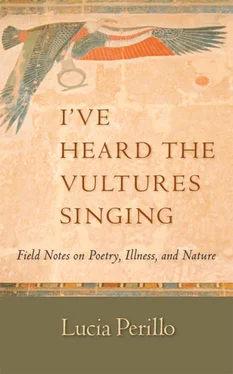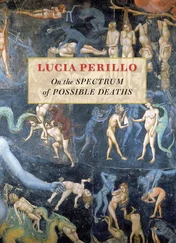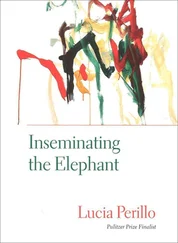Vivian tells me: You’ll blurt out anything that pops into your head , and I think that my tendency to blurt comes from my being such a blank slate, the suburban girl with barely any history. A good student, but not too good. Not bad enough to be interesting in a James Dean sort of way, just a likeable whiner, a slacker before the coinage of the word. On the high school track team, I often stopped to walk.
And now at last I do have a unique identity, though it is not at all what I envisioned — still better than nothing, I sometimes think. Now I am: bag lady on a cart jury-rigged with lights and crutches. Know me slightly, and I am disarmed sufficiently to qualify as a kook. Know me well, and I become merely an eccentric.
The name I find most accurate to my current state is a word our society has circled half a rotation past: handicapped , derived from the eighteenth-century manner of wagering by placing money in a cap. Perhaps America abandoned the word because of the folksiness of its constituent parts, the words handy and cap , which seem too slight for the body’s grueling saga. But my affection for the word comes from one of my primal reading experiences, a story by Kurt Vonnegut called “Harrison Bergeron” that was first published in 1961, when I was three. I must have read it in junior high, and now, looking at it for the first time in over thirty years, I see that though its version of Big Brother futurism is hammered out with a heavy mallet, the central image still appeals to me.
In the story a married couple is watching a ballet on TV, the dancers weighted with “sash-weights and bags of bird-shot, and their faces were masked, so that no one, seeing a free and graceful gesture or a pretty face, would feel like something the cat drug in.” Those who are smart (like the husband) must wear earphones through which the government broadcasts loud noises so they can’t think.
To be weighted with canvas sacks full of pellets turns out to be a not-bad approximation of what my body actually feels like (sacks of pellets and nettles). The bags are tied to my ankles so I can’t lift my legs, and it spooks me that in junior high school I would have so deliberately filed the story in my brain’s otherwise jumbled cabinet, that the body would broadcast its secret future so brazenly.
There is also a genteel quaintness associated with handicapped , versus the technological disabled. Crippled , on the other hand, comes out of the gnomic European setting of fairy tales, which is the basis of its appeal. The plot may be topsyturvy, but we trust that it will be untwisted at the end. The plot may be cruel and gruesome, but it is often hopeful nonetheless.
My small city shares some qualities with the weird nocturnal settings of fairy tales, in that its streets are clogged with young people at night, the primary colors of their hair massaged into phantasmagoric shapes. Sometimes I’ll be rolling along the streets and a shout will ring from the dampness and the dark —Cripple! This will unhinge me not because the word is offensive but because I realize how visible I am, how I have lost, forever and utterly, the ability to blend in. All my life, isn’t this what I aspired toward — being a distinctive someone? And haven’t I, like the protagonist of the fairy tale, finally gotten what was once my fervent wish?
1
First thing that happened, after I got diagnosed with the disease, was that my mother urged me to see the famous holistic doctor in Seattle. I was surprised to find his office in a strip mall, his waiting room under perpetual construction, with sheets of milky plastic flapping across holes where doors and windows had once been. This gave an especially pathetic aspect to the stricken, who looked like citizens of a Soviet republic that no longer existed. Perhaps because they trembled in their winter coats.
Oh right , I had to remind myself, now you are one of the stricken.
Perhaps because we trembled in our winter coats.
2
The famous holistic doctor could not retain in his care all those who made appeals, so he passed me along to another doctor in his clinic, a woman whose pink complexion I took to be an indicator of health. But she was very fat, and this made me suspicious of her advice, which pertained mainly to my diet and my ingestion of the expensive vitamins she had me buy (which were sold by the doctor’s office). Simultaneously, I felt queasy about my prejudice regarding her size, which revealed the shallowness of my character. So I returned diligently to my appointments although she also had an irksome habit of hugging me before I left.
For a while I carried around a knapsack full of vitamin bottles. In those days my sorrow eased up rarely, and whenever it did I felt like a drenched person who suddenly finds herself standing in a sunbeam shooting through a gap in the thunderheads.
Because I was both young and sad, during this phase of my treatment I also went to London to track down a man I loved, and there the slaking happened when I found an exhibit in the British Museum of watercolors by the poet William Blake. They were displayed behind little velvet curtains so as not to be faded by even the dim museum light. Each time I lifted my arm to lift the cloth, the vitamins rattled like an aboriginal percussion instrument, a gourd full of soft pebbles, background music that played while I peeked at Nebuchadnezzar crawling on his knees and Satan inflicting the boils on Job, a painting that spooked me with its eerie familiarity until I realized that I’d had the poster in my college dorm room.
3
The doctor in practice with the famous holistic doctor urged me to remove the fillings in my teeth because they contained the toxin mercury. She recommended a dentist in Tacoma who specialized in this procedure. The filling particles were so poisonous that his assistant used a device like a Dustbuster to suck them away as he worked with his drill.
The dentist instructed me to drink a special soup called “Bieler’s Broth,” which contained a variety of green vegetables cooked in bouillon. I felt foolish making it from his recipe, particularly when it came time to drink. Its banal taste insulted me for some inexplicable reason.
Yet what I liked about this guy was how he didn’t engage in the annoying trademark behavior of dentists: asking questions when one’s mouth is full of tools. Instead he kept up a steady comic patter with his Dustbustering assistant, while his office stereo played what is sometimes known as “novelty music.” In particular I remember the song “Guitarzan,” a semi — spoken-word number that gave both the dentist and his assistant the chance to chime in, respectively, as Tarzan and Jane. Tarzan mumbled a low-pitched rhyme, while Jane’s high wail was supposed to conjure a woman clinging to a vine, swooping through the trees.
4
My co-workers at the small college where I worked of course gave me advice about alternative forms of healing that they’d found to be of use. An education professor gave me a book by the famous Ayurvedic doctor who’d not yet become famous. In the book he made an obvious point that nonetheless was stunning to me: how the mind says Now my leg will move and a complex biochemical process is unleashed that in fact causes the leg to move.
So I thought: Now my leg will move. But it didn’t.
5
And a sociology professor gave me the name of her Chinese doctor in Seattle. His office was in the international district, near the pet store I loved whose narrow aisles were crowded with fish tanks. The tanks invariably contained dead fish, which nobody got exercised enough about to remove. I read this as a sign of clearheadedness — mortality was not to be feared. I think that’s why I loved the store, despite the way it stank.
Читать дальше











![Various - Birds and Nature, Vol. 12 No. 5 [December 1902]](/books/745517/various-birds-and-nature-vol-12-no-5-december-thumb.webp)
![Various - Birds and Nature Vol. 11 No. 2 [February 1902]](/books/745533/various-birds-and-nature-vol-11-no-2-february-1-thumb.webp)